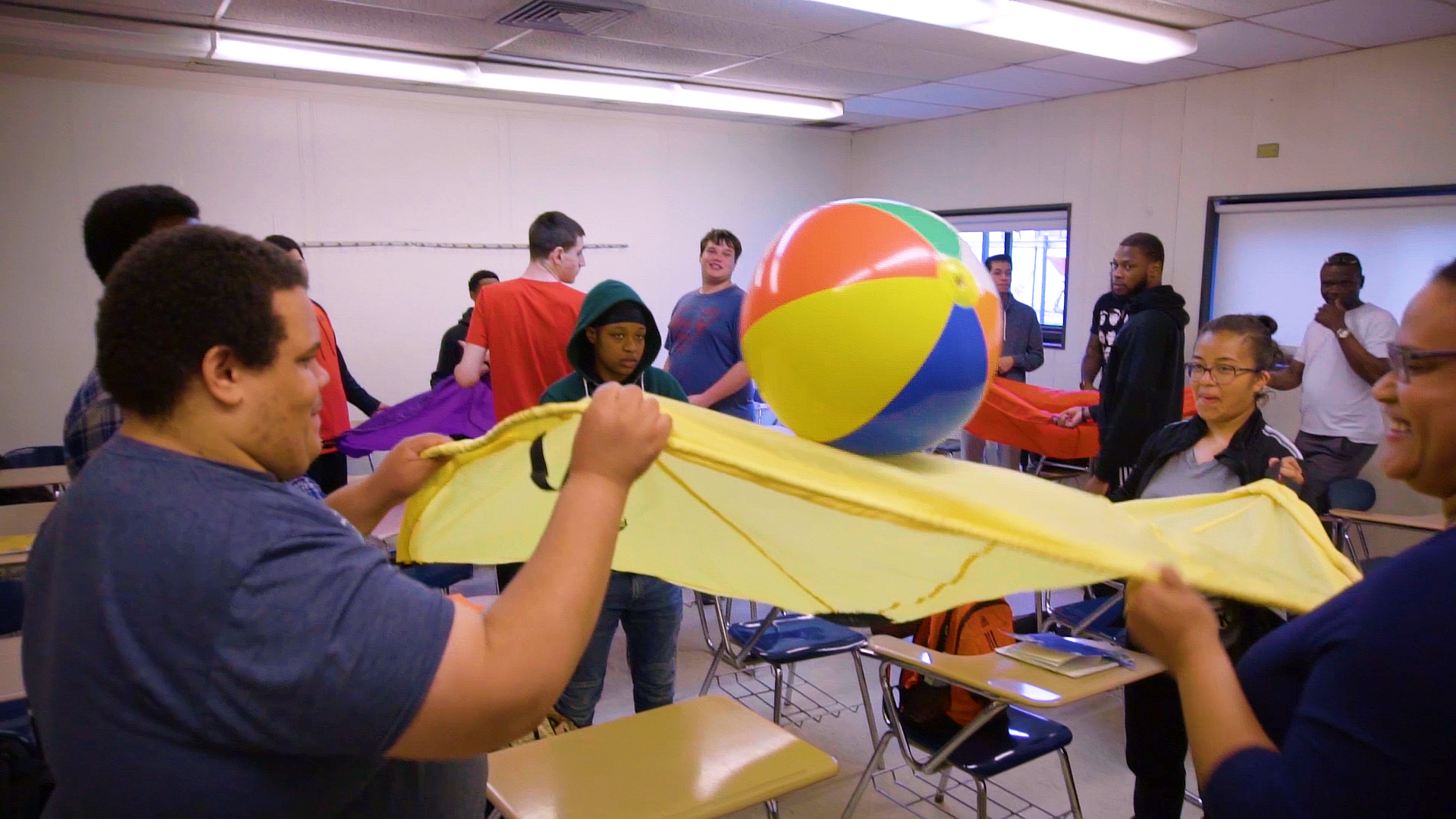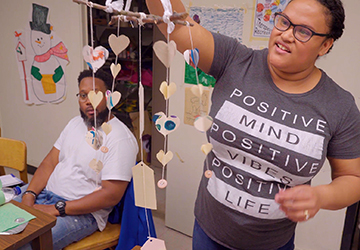Campus News Stories
Contact for press inquiries, interviews, and photo requests: Cheryl Todmann | Cheryl.Todmann@kbcc.cuny.edu | 646-897-2508

For the Love of Play: Recreation Therapy at Kingsborough
If you're looking for a career where you can make a difference in the lives of others while having fun, consider Kingsborough Community College's associate of science degree in PERRT with a concentration in recreation therapy (RT).
Also known as therapeutic recreation, RT is a holistic, people-centered approach to healthcare and wellness. Recreation therapists work with individuals of all ages who have physical, cognitive, or emotional disabilities, as well as those living with chronic illnesses or injuries, in various settings, including hospitals, rehabilitation centers, nursing homes, community centers, and schools.
RT looks at the whole person rather than just the medical conditions or symptoms they may be experiencing. KCC’s RT students are trained to assess each individual's unique needs, interests, and abilities and design treatment plans incorporating leisure activities tailored to meet those needs. That may include arts and crafts, games, sports, and outdoor activities, among other leisure activities. The key is that the activities are meaningful, purposeful, and enjoyable to the individual client, designed to help them develop and maintain the skills and abilities they need for daily living and improve their quality of life.
 Recreational therapy can be used as complementary therapy along with other traditional
medical treatments. It can help individuals manage pain, reduce stress and anxiety,
improve motor skills, increase socialization and communication, and enhance overall
physical and emotional well-being. RT is also an important component of palliative
and end-of-life care, helping individuals and their families cope with the emotional,
physical, and spiritual challenges that come with serious illness or the end of life.
Victoria, now working as a certified therapeutic recreation specialist (CTRS) assigned
to the medical units at the NY Harbor VA Hospital – Brooklyn Campus, found her way
to the major after such an experience.
Recreational therapy can be used as complementary therapy along with other traditional
medical treatments. It can help individuals manage pain, reduce stress and anxiety,
improve motor skills, increase socialization and communication, and enhance overall
physical and emotional well-being. RT is also an important component of palliative
and end-of-life care, helping individuals and their families cope with the emotional,
physical, and spiritual challenges that come with serious illness or the end of life.
Victoria, now working as a certified therapeutic recreation specialist (CTRS) assigned
to the medical units at the NY Harbor VA Hospital – Brooklyn Campus, found her way
to the major after such an experience.
“RT helped me and my family through one of the most difficult experiences we had ever faced by focusing on something other than disease, cancer, and death,” recalled the former student. “It helped us to continue to form positive memories right up until my dad’s passing. It not only saved our last Christmas, but somehow made it enjoyable, reminding us there were still opportunities to enjoy life. After my dad died, I decided I no longer wanted to pursue a career in psychology. I wanted to be a recreation therapist and help facilitate meaningful experiences for families like my own.”
In addition to assessment, KCC’s comprehensive curriculum includes courses on leadership, organization and administration of recreation programs; social recreation and group dynamics; arts and crafts techniques; and therapeutic recreation for individuals with disabilities, where students explore accessibility barriers. Field trips are scheduled to agencies offering therapeutic recreation services, so students can observe what they’re learning being used in real-life situations. In addition, students are expected to complete 100 hours of fieldwork in a health-care setting or a community-based recreation organization that provides specialized recreational programming for those with disabilities.
KCC graduates have gone on to work with individuals of all ages, from children to the elderly, in a variety of health-care settings, including long-term and assisted-living facilities, programs for individuals with developmental disabilities, pediatric and psychiatric hospitals, and day treatment programs in addition to the Veteran's Administration. Graduates can enter the career with a two-year degree, but most choose to continue their studies and earn either a bachelor’s or master’s in therapeutic recreation.
Recreational therapists share a passion for helping others and a desire to positively impact people's lives. “I think people that choose recreation therapy for a profession are very empathetic, love to work with people, and who themselves have a great leisure lifestyle,” said RT Professor Mimi Fierle. “You may not be able to walk or communicate with me verbally, but I still want you to feel that there's a sense of joy and purpose in your life,” added former student Tasha.
For more information on KCC’s recreation therapy program, visit www.kbcc.cuny.edu/academicDepartments/hper/recther.html

